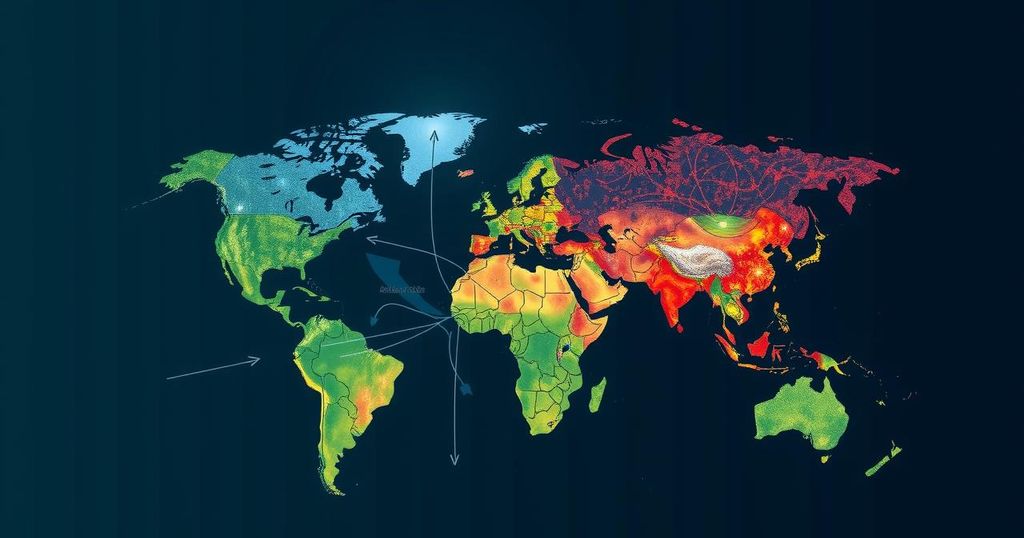Research indicates that climate change and related disasters are not significantly influencing voter decisions in the U.S. Misinformation and the connection between political identity and climate beliefs are cited as key factors. Younger generations show greater concern for climate issues, suggesting future elections may be impacted more by these concerns in the Mountain West.
Research conducted by Lawrence Hamilton, an academic at the University of New Hampshire, reveals that concerns regarding climate change and associated disasters are not significantly influencing voter behavior. Despite a previous rise in awareness about climate issues in the United States, this momentum has diminished post-pandemic, largely due to the prevalence of misinformation about governmental and scientific matters. Incidents like hurricanes Helene and Milton in the Southeast and the Davis Fire in northern Nevada exemplify extreme weather’s consequences fueled by climate change, yet they appear to have little electoral impact. Hamilton articulates that the entrenchment of voting alignment with personal identity complicates shifts in public sentiment. He suggests that specific beliefs, such as rejecting climate science, are closely linked to deeply rooted identities. This phenomenon is particularly pronounced among individuals aged 30 and above, while those in their twenties demonstrate greater openness to changing their views. Furthermore, younger generations exhibit a stronger inclination to attribute climate change to human activities and express heightened concern over escalating climate-related disasters. This shift may enable climate issues to have a more profound influence on future elections, particularly in the Mountain West region.
Climate change poses an increasing threat through frequent and severe weather events, making public awareness and response pivotal in the political arena. This article assesses the intersection of climate change, public perception, and electoral behavior, particularly as misinformation proliferates following the pandemic. As the electorate grapples with these issues, it is crucial to understand the factors influencing voting patterns, particularly among differing age groups and their respective attitudes toward climate science.
In summary, while climate change continues to escalate as a critical global issue, its influence on voting behavior appears limited, primarily due to entrenched identities linking political beliefs to scientific acceptance. Hamilton’s observations highlight a generational divide in attitudes toward climate change, suggesting that younger voters may eventually propel climate considerations to the forefront of electoral issues in the future. The impact of recent natural disasters, although significant, remains subdued by the broader sociopolitical context.
Original Source: www.kanw.com






